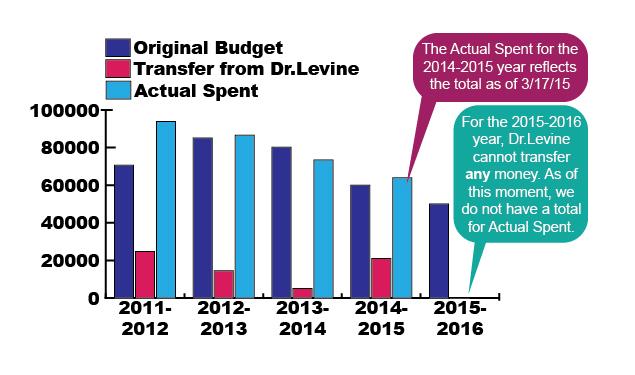Faculty Development budget cut, guidelines changed
Photo credit/ Kelsey Van Horn
October 18, 2015
The faculty development budget has been cut and as a result, guidelines for requesting funds have also changed.
Dr. Sarah Kenehan, associate professor of philosophy and chair of the faculty development committee, explained that the faculty development budget supported faculty’s “creative endeavors,” whether it be attending conferences or conducting research.
“One of the main ways faculty engage in creative endeavors is by attending conferences or going to workshops, presenting at conference… going to archives to do research,” Kenehan explained.
According to Kenehan, the purpose of the university supporting such endeavors of faculty is so that they can become tenured professors, and then stay relevant in their disciplines after getting tenure.
The budget, which has been steadily declining for the past five years, was dropped from $60,000 last year to $50,000 dollars this year. In addition, the budget is usually supplemented with funds from the budget of Dr. Alan Levine, vice president of academic affairs. However, Levine’s office will not be able to transfer funds this year.
“Budgets across the university have been cut, across the board, including Dr. Levine’s office,” Kenehan said.
This year, the guidelines for obtaining funds have also changed drastically. In the past, any faculty member, including tenured and clinical faculty, could request funds from the budget. Now tenure-track faculty, in their first through fifth year are being prioritized for funds, which had not previously happened, according to Kenehan. The reason for this is because in order for a faculty member to get tenure, they must participate in scholarship and research.
“It’s not uncommon for the guidelines to change,” Kenehan explained. In past years, sometimes faculty members would get money to attend conferences if funds were available. Two years ago, the budget stopped covering conference attendance.
Kenehan took the proposal to the faculty senate, where it was approved. Then, the information was made public to faculty shortly after.
Levine explained that if there is money left over in his budget when spring semester comes, he would try to transfer some over.
In the years to come, he also hopes that monies will become available earlier on so that he can help more with the faculty development budget.
“I would like to see enough money put into the faculty development budget to meet the requests faculty have,” Levine said, “I will do whatever I can to meet the requests that faculty have.”
Kenehan also said if funds are left over after tenure-track faculty use funds, the budget will be opened up to the rest of faculty.
Contact the writer: [email protected]





